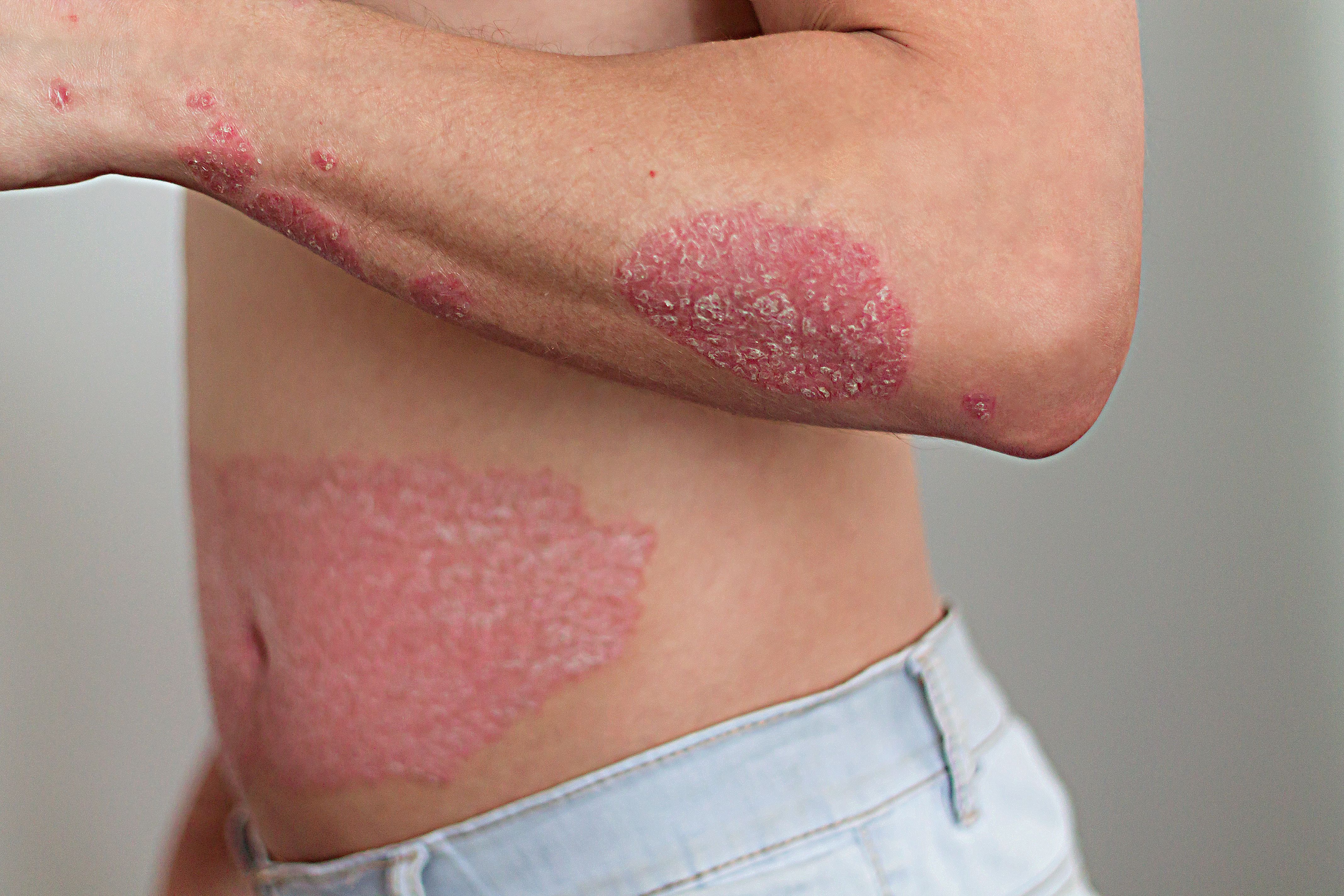- Acne
- Actinic Keratosis
- Aesthetics
- Alopecia
- Atopic Dermatitis
- Buy-and-Bill
- COVID-19
- Case-Based Roundtable
- Chronic Hand Eczema
- Chronic Spontaneous Urticaria
- Drug Watch
- Eczema
- General Dermatology
- Hidradenitis Suppurativa
- Melasma
- NP and PA
- Pediatric Dermatology
- Pigmentary Disorders
- Practice Management
- Precision Medicine and Biologics
- Prurigo Nodularis
- Psoriasis
- Psoriatic Arthritis
- Rare Disease
- Rosacea
- Skin Cancer
- Vitiligo
- Wound Care
Article
Metabolic Inflammation Contributes to Depression in Psoriatic Disease
Author(s):
As many as 1 in 5 patients with psoriasis experience depression as a comorbidity.
In patients with psoriasis and psoriatic disease, metabolic inflammation is a cause of comorbid depression, according to new research.
irina_g/AdobeStock

A research article1 reported that specific inflammatory patterns within IL-6, IL-8, IL-23, IL-17 family cytokines, and tumor necrosis factor (TNF) can cause neuroinflammation, ultimately leading to anxiety and/or depressive behavior or depression in patients with psoriatic disease. According to authors, prior knowledge of psoriasis and comorbid depression linked burden of disease, psychological stress, and stigmatization to the origins of depression.
Authors noted that non-cutaneous diseases such as diabetes, heart failure, and hypertension were first identified as comorbidities of psoriasis in 1995, with cardio-metabolic consequences related to psoriatic disease being more thoroughly understood over time. Risk of myocardial infarction, for example, was previously found to be significantly higher in patients with psoriasis than in members of the general population.
Other conditions such as dyslipidemia and endothelial dysfunction were also linked to psoriatic disease. Like depression, article authors noted that both comorbid conditions are linked to inflammation.
In western countries, authors note that 1 in 5 people with psoriatic disease, as much as 20%, also experience depression. Previous studies have also demonstrated that rates of depression are higher in patients with psoriatic conditions than in the general population.
Citing recent brain structure research,2 authors described research demonstrating increased right precuneus thickness in people with psoriasis, only in cases where depression was present. Additionally, further research3 demonstrated a positive correlation between psoriasis area and severity index (PASI) and the Zung self-rating depression scale (SDS) in cases of comorbid depression and psoriasis.
“Considering that depression is an inflammatory condition with neuroinflammatory events with a similar signature as in the major domains of psoriatic disease, people with psoriasis-associated depression are no longer responsible for their perceived lack of coping with psychological threads,” article authors wrote. “In the practical management of people with psoriatic disease, screening for depression by using simple clinical questions or respective tools needs to be implemented.”
References
- Mrowietz U, Sümbül M, Gerdes S. Depression, a major comorbidity of psoriatic disease, is caused by metabolic inflammation. J Eur Acad Dermatol Venereol. Published online 2023. Accessed May 22, 2023doi:10.1111/jdv.19192
- Lada G, Talbot PS, Chinoy H et al. Brain structure and connectivity in psoriasis and associations with depression and inflammation; findings from the UK biobank. Brain Behav Immun Health 2022; 26: 100565.
- Wang X, Liu N, Wu L, Zhang Y, Zhang G. Abnormal functional connectivity in psoriasis patients with depression is associated with their clinical symptoms. Front Neurosci 2022; 16: 1026610.
Newsletter
Like what you’re reading? Subscribe to Dermatology Times for weekly updates on therapies, innovations, and real-world practice tips.







